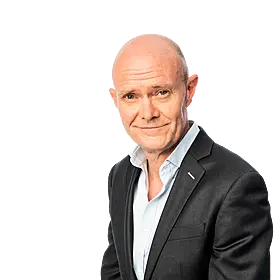No money was allocated to the national eating disorder treatment plan last year.
The plan, launched at the start of 2018, is meant to ensure access to specialist care across the country.
In 2018, €1.5m was allocated to the plan; however, just €137,000 was spent.
In 2019, €1.6m was allocated, but no money was spent.
The HSE has now confirmed that it did not allocate any new funding to the programme at all last year.
This means that almost no money has been spent developing eating disorder treatment over the last three years, despite the launch of the new plan.
The HSE said money from previous years which was allocated but not spent will be used this year.
“In 2020 no additional development funding was provided for eating disorders,” it said in a statement.
“The balance of €3.94m of previous funding remained in place. However, nationally planned developments for eating disorder services in 2020 had to be temporarily paused.
“It is important to note that this funding has not been diverted. It remains fully available for recruitment of eating disorder posts in 2021.”
Mortality
Dr Caroline Maher, co-chair of the eating disorder interest group at the College of Psychiatrists of Ireland, was disappointed by the move.
“I think it’s fairly clear that the HSE does not prioritise eating disorders,” she said.
“The importance of the eating disorder national clinical programme was that it was agreed by both the HSE and the College of Psychiatrists that this was an absolute priority – because otherwise people are going to continue to die.
“There is at least a 10% mortality at 10 years for people with anorexia. Mortality is also higher for binge eating disorder and bulimia nervosa.
“One of the most important things is, if the treatment is provided in this specialist way, it really works."
"Incredibly frustrating"
Shauna, a woman who suffers from anorexia and whose name has been changed to protect her identity, said the lack of services is incredibly frustrating.
“You’re always on waiting lists; you’re always told there’s someone who’s worse than you,” she told The Hard Shoulder.
“There just doesn’t seem to be any firm commitment from the HSE for eating disorder services.”
BMI
Eating disorder cases are normally assessed by severity using Body Mass Index (BMI), which is a simple measurement comparing a person’s weight to their height.
Shauna said she was told she could not access specialist care as her BMI was not low enough.
“I remember, when I first met a psychiatrist, they were explaining that my BMI was not low enough and they had someone else with a BMI that was less than me and needed treatment more,” she said.
“So, I guess it’s not surprising that we have to wait longer, or indefinitely [for treatment].”
Fiona Coyle, the CEO of Mental Health Reform, said this is part of a broader trend of underfunding new mental health services.
“Between 2012 and 2019, there was €265m committed to go towards developing new [mental health] services, but 20% of that money - so €50m - actually went back into supporting existing services,” she said.
You can listen back to the full report from Newstalk's Paul O'Donoghue here:








